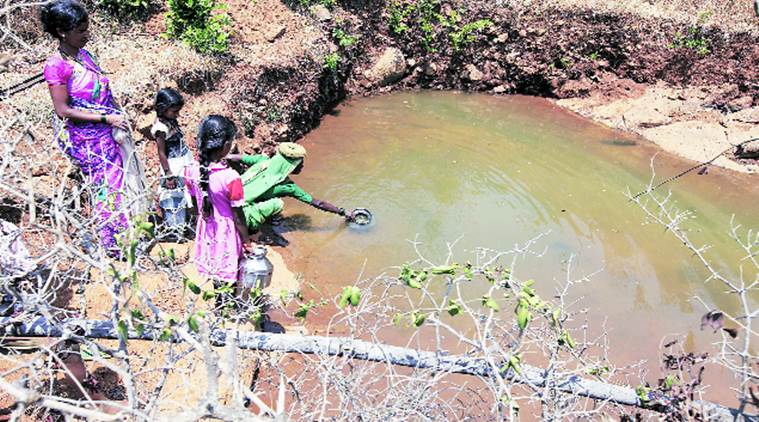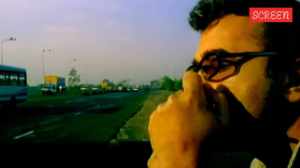Struggle for water despite 3,000 mm average rainfall
Logically, a region, which receives more than 3,000-mm average rainfall in a year, shouldn’t complain of water shortage.
 In Jadhavwadi, villagers walk for several kilometres to collect water
In Jadhavwadi, villagers walk for several kilometres to collect water
It’s afternoon in Jadhavwadi and the sun is at its peak. Wearing an old pink frock, nine-year-old Roshni Dhumal sits on the edge of a tiny spring water opening. After filling a vessel with water, she places it on her head and starts walking.
Roshni is joined by her seven-year-old sister Mangal and 71-year-old grandmother. Despite their ages and capacity, they are doing their bit for the family by getting water. Just like Jadhavwadi, various villages and tiny settlements in Velhe and Bhor talukas in Pune district are dotted with young girls and women of all age groups, walking for kilometres with their water vessels.
Logically, a region, which receives more than 3,000-mm average rainfall in a year, shouldn’t complain of water shortage. Yet every year, many villages of Velhe and Bhor talukas have a hard time during the summer. The reason lies in their geographical location. Firstly, these villages are situated at a height where water tankers can’t reach. They are surrounded by Sahyadri Hills, primarily made of basalt rock that has poor porosity. The soil found in the region is red that doesn’t allow seepage of water and thus reduces its groundwater potential. So while one may still find green trees in the region, there’s no water available for the locals.
Kailash Dhumal of Dhumalwadi said, “The women of our family walk at least two kilometres, to and fro, several times a day, to bring water. The water in the village well is insufficient and the water tanker can’t reach here.”
Sixty-five-year-old Rajabai Bhikaji Guhini of village Guhini in Velhe taluka says that in order to get water from a spring, she covers at least 20 kms in a day. “There is no proper road to the spring but a rough, uneven path. I get so tired that during each trip to the spring, I sit, after every few minutes, to rest,” she adds.
There is just one well in Guhini, which dries up every year by January. Since January, the first time that the village received tanker water, was last week on April 29. “The water was sufficient only for a day. It wasn’t a full-tanker water as it can’t reach up to here. Half of the water was unloaded in a village on the way and the rest came to us. We cannot complain to anyone because our gram sarpanch doesn’t stay in the village,” says Chaya Ganesh Guhini.
The villagers inform that gram sarpanch Sushila Prakash Dhanawade stays in Pune. Just like Guhini and Jadhavwadi, there are numerous villages that are dry, despite witnessing good spells of rain, every year.
Metpilaware, Gelgane, Saratwadi and Kusarpeth are just a few of them. Block Development Officer GV Bairagi acknowledges that the area is struggling with water shortage and claims that a proposal for tankers for a number of villages has been approved, and by next week, the villages will be supplied tankers.
“We can’t opt for borewell because the groundwater level here is very low. According to government norms, a borewell cannot be dug deeper than 200 feet. And here in this region, groundwater can be found only after 400-500 feet,” he added.
“These villages are so remote that before the rainy season, the locals buy and store all the necessary household and grocery items, to last for three to four months. Though the villages have geographical drawbacks, they can benefit from spring water sources. What’s needed is identification of these sources and their development,” said Sunita Gaikwad, one of the co-ordinators of Jnana Prabodhini Foundation, a Pune-based NGO that has constructed springwater-based wells in some of the villages in the region.







